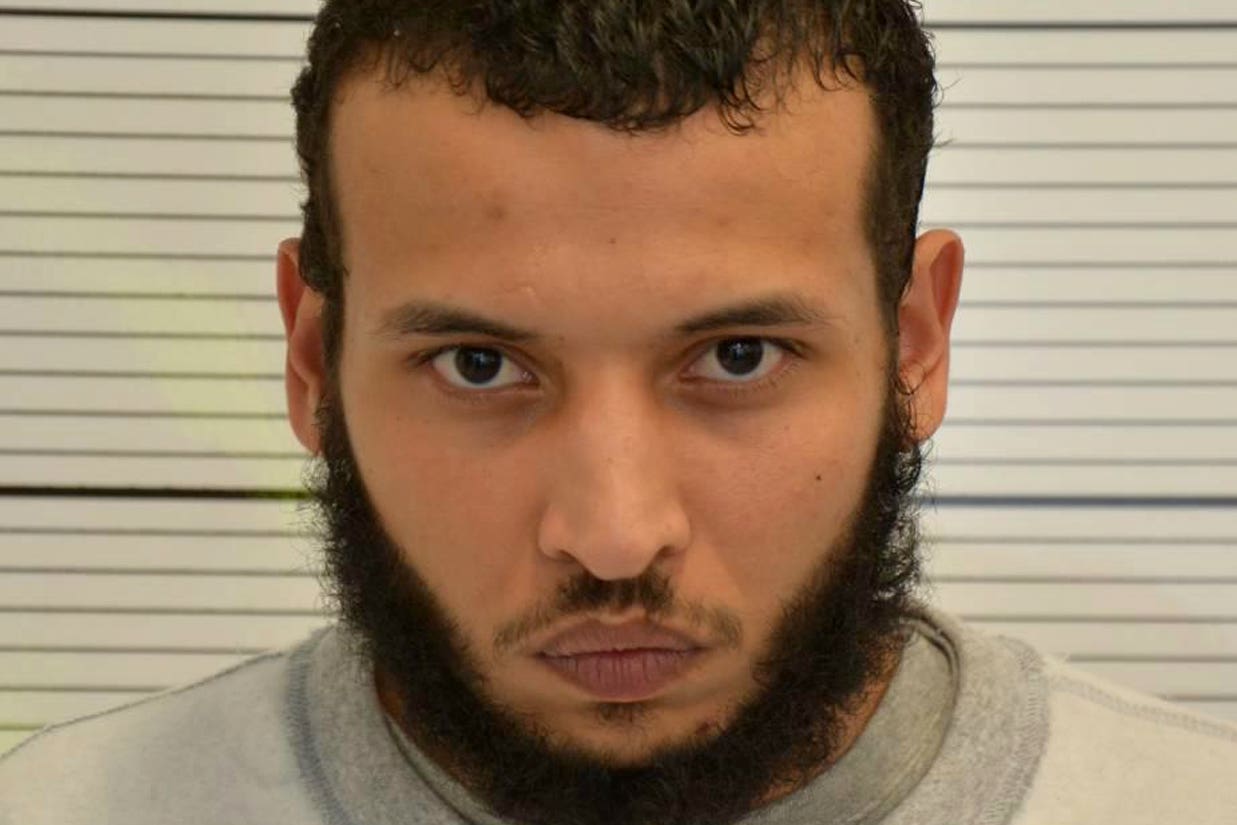Reading terrorist had knife by bed during police home welfare check, court hears
Libyan refugee Khairi Saadallah fatally stabbed friends James Furlong, 36, Dr David Wails, 49, and Joseph Ritchie-Bennett, 39, on June 20 2020.

The Reading terrorist a knife by his bed during a police welfare check before he stabbed three men to death, a court heard.
Libyan refugee Khairi Saadallah fatally stabbed friends James Furlong, 36, Dr David Wails, 49, and Joseph Ritchie-Bennett, 39, in Reading’s Forbury Gardens on June 20 2020.
Three other people – Stephen Young, Patrick Edwards and Nishit Nisudan – were also injured before Saadallah threw away the 8ins (20cm) knife and ran off, pursued by an off-duty police officer.
In my opinion, they (the police) should have done more
In a statement read to the court, his brother, Aiman Saadallah, said he met with his brother on a day leading up to the attack.
During their conversation, Saadallah reportedly told Aiman how he wished to harm himself and others and go to heaven.
He said his brother’s mood “reminded me of a previous incident a few years ago when he tried to throw himself out of my window.
“He was saying he was possessed, the way he was talking, he didn’t sound like a person I know.”
After he left, Aiman reportedly found clean razors and others that Saadallah used, prompting him to call 999 and request a welfare check.
CCTV of the police attending Saadallah’s property showed him wearing a black tracksuit standing near his single bed against a white cupboard in the wall.
The court heard how Saadallah was standing between the officers and a knife which was “in the bed area.”
Aiman added he would have expected police to fully search his house. “In my opinion, they should have done more,” he added.
He said on June 20 2020 he heard people had been attacked in the park and feared for his brother’s safety.
Saadallah’s phone was off and he went to the scene and asked after his brother, at which point officers reportedly told him to step away.
Later that day, Aiman recognised Saadallah from the footage of the attack circulated on social media.
Senior investigating officer, Detective Chief Superintendent Oliver Wright, had earlier told the court how Saadallah had been radicalised into Islamic extremist groups when fighting in Libya during an uprising against Colonel Muammar Gaddafi’s dictatorship over the country.
The hearing was told that Saadallah said he fled when he was asked to engage in torture.
Thames Valley Police Detective Chief Superintendent Oliver Wright, senior investigating officer in the case, told the court he believed Saadallah to be a “complex individual” who was radicalised during his time in Libya, and that he maintained an “enduring interest” in Islamic extremism.
Years later, while imprisoned in HMP Bullingdon in 2017, Saadallah was reportedly “often keen” to speak with well-known convicted Islamist terrorist Omar Brooks.
Prison reports read to the court said: “Intelligence suggests that (Saadallah) is often keen to talk to Mr Brooks. (Saadallah) is young, impressionable and volatile.
“Due to the fact that Brooks is a well-known extremist preacher, this worries staff.”
Another said: “He’s stated seven times to various different staff members that he’s still an active member of terrorist group Isis.
“(He) said he wants to be deported so he can carry on fighting.”
On other occasions, however, Saadallah claimed to have fled from Isis.
The court heard that his phone contained an image of a flag associated with Islamic State terrorists, as well as an image of two men in combat gear, one of whom is performing the “one-fingered salute” linked with the same group.
He also had multiple photographs of himself carrying guns, including an assault rifle, in an image thought to have been taken during his time in Libya.
Two images, also shown to the court, included a handgun with the letter “K” spelled out in bullets, and his account on X, formerly Twitter, was named “Khairy Thug” and featured a cover photograph of multiple guns and ammunition.
Mr Wright said Saadallah was radicalised in Libya and that his interest in Islamic extremism was “enduring”.
He added that Saadallah is a “complex individual” and suggested he is “used to extreme violence”, adding: “It’s difficult to see during that time exactly what was going on in his head.”
The inquest continues.
Bookmark popover
Removed from bookmarks